Features
By Sarah Whitebloom
Self-isolation, lock-downs, economic chaos and closed borders: responses to today’s COVID-19 pandemic have their roots in history. In the past, there has also been panic-buying, attempted flight, fake news, quack remedies, beleaguered health authorities and a race for vaccines – all in the face of millions of deaths.
From earliest history to the SARS epidemic, the world has endured plagues, viruses and infections that have inspired panic among populations, rulers and politicians alike – as well as countless untimely deaths. From the Black Death of 1348 to the London plague of 1665, from the repeated impact of cholera in the 19th and 20th centuries, to the millions lost in the 1918 ‘Spanish’ flu, leaders have often struggled to know what to do while populations have reacted with fear and later, occasionally, fury. The reaction to COVID-19 can be seen very much in this tradition, as concern has turned into pressure for the strictest containment measures, alongside the determined – and unprecedentedly rapid - pursuit of a cure.
During cholera epidemics, propaganda was used to urge people to pursue physically and morally 'healthy' habits from staying calm and washing their hands – just as it has been today - to praying for salvation and quitting alcohol. In the 1918 epidemic, face masks were in common use and, in earlier times, people were ordered to quarantine. In the distant past, though, civil disorder sometimes followed. Public compliance eventually turned into public dissatisfaction with measures, which included infected people literally being shut into their houses.
In the 1918 epidemic, face masks were in common use and, in earlier times, people were ordered to quarantine
As in the past, in the current crisis there will be ‘pinch points’, according to historians, for instance if the number of cases rises despite social distancing and the authorities will need to issue reassurance or adjust the measures being taken. While social distancing is an internationally agreed approach, as the situation changes, governments around the world will be under pressure to put in place policies for an eventual move to less draconian measures. At that point, Oxford Professor of the History of Medicine, Mark Harrison, maintains international leaders will need to look for an ‘exit strategy’ or an end in sight from the current lockdown approach. Professor Harrison says: ‘Governments will need to ask, how do we de-escalate? What measures do we put in place and can we re-escalate at a later point?’
Although the threat to life from the plague was in a completely different order to that presented by COVID-19, the measures taken in London in 1665 were not dissimilar to current international social distancing. From the beginning of the plague outbreak, there was strict quarantine of infected people, trades closed down and many fled the city. But, in chaotic Restoration-era London, crime and disorder followed harsh restrictions. Samuel Pepys wrote in his diary: ‘This day, much against my will, I did in Drury Lane see two or three houses marked with a red cross upon the doors, and ‘Lord Have Mercy upon Us’ writ there – which was a sad sight to me, being the first of the kind… that I ever saw.’
Although the threat to life from the plague was in a completely different order to that presented by COVID-19, the measures taken in London in 1665 were not dissimilar to current international social distancing
Opposition was swift. In the documents of a case discussed at court at Whitehall in the presence of Charles II, 28 April 1665, it states: ‘Upon Information given unto this Board, that the house, the Signe of the ship in the New buildings in St.Giles in the fields, was shutt up as suspected to bee infected with the Plague, & a Cross and paper fixed, on the doore; And that the said Cross & paper were taken off, & the door opened, in a riotious manner, & the people of the house permitted, to goe abroad into the street promiscuously, with others.’
This was not an isolated incident. In a letter from a civil servant, 1665, also in the National Archive, it states: ‘Death is now become so familiar, and the People soe insensible of danger, that they look upon such as provide for the publick safety, as Tyrants and Oppressors.’
Government experts are already talking about scaling back the strict measures over time. The current lockdown is initially going to last three weeks. And over the next 12 months greater and lesser restrictions may be applied, depending on the course of the virus.
Widespread use of testing offers a way of relaxing measures but GPS monitoring advocated in South Korea is proving controversial there. Professor Harrison says: ‘Maybe they [the government] will have to communicate with people that they will have to accept some risk as a price for their freedom. Maybe they will have to make available more intensive care beds, in expectation of more cases....The prime minister said there was light at the end of the tunnel of 12 weeks. That is the target. But there could be dissatisfaction if de-escalation doesn’t happen...Resentment could build up.'
In one important respect parts of the COVID-19 response are very different from previous centuries - or even decades. This includes the speed with which scientists have been able to identify, sequence, and share information about a completely novel pathogen, the development of promising diagnostics, vaccines, and treatments within just over three months of the virus being identified, and global real-time disease surveillance
Problems could arise, if, as happened in 1665, there are secondary waves of infection. The plague raged in the City for more than 12 months, but according to the Bills of Mortality, the peak was not reached until September 1665 – a full year after the first reports of illness. And there were still deaths after this peak, affecting some people who had returned to London, in the expectation it had ended. Professor Harrison says: ‘It is still too early to say what is working and what isn’t [in terms of the fight against the virus]. There’s a reasonable high probability that there will be some immunity [for people who have had the virus] but we don’t know how long that would last.’
Careful studying of how countries such as China and South Korea, which rapidly implemented strict social distancing early on and then balance a de-escalation of measures, will provide valuable lessons for the rest of the world.
Dr Claas Kirchhelle, lecturer in the history of medicine at University College Dublin and fellow of the research and policy unit, the Oxford Martin School, says: 'Restricting the movement of people and implementing other rudimentary forms of social distancing have been mainstays of disease responses for centuries - alongside rumours, stigmatisation, and often desperate attempts to find remedies ranging from charms to quack medicines'.
Responses often varied according to cultural precedents and the specific biological profile of the pathogens involved. But, he says, in one important respect parts of the COVID-19 response are very different from previous centuries - or even decades. This includes the speed with which scientists have been able to identify, sequence, and share information about a completely novel pathogen, the development of promising diagnostics, vaccines, and treatments within just over three months of the virus being identified, and global real-time disease surveillance.
Dr Kirchhelle says the response to COVID-19 marks a dramatic acceleration of disease response strategies, which gradually emerged from the second half of the 19th century onwards. During this period, the discovery of germ-theory gradually revealed the biological causes and transmission modes of previously mysterious and untreatable diseases.
Resulting blessings were manifold: from increasingly reliable diagnostics and more targeted non-therapeutic interventions like chlorination or campaigns against flea-bearing rats to the development of effective vaccines and specific therapies like antibiotics. At the same time, nation states also became better at coordinating their response to international disease outbreaks. Convened in response to the cholera pandemics sweeping the globe, a series of international sanitary conferences began to lay the legal groundwork for standardised quarantine periods, disinfection methods, and international information sharing on infectious disease.
At the time of the 1918 flu pandemic, many people expected that science and officials would be able to take action. But the tried-and-tested approaches of traditional bacteriology failed. The disease was not caused by a bacterium but by an unusually deadly influenza virus. Not knowing what this was meant ‘they didn’t know what they were facing’. Coming at the end of the Great War and with actual incidence rates often censored by wartime and post-war governments, the 'flu' was able to move quickly around the world and across a broken Europe. And, as now, many people thought it was ‘just flu’. Dr Kirchhelle says: ‘There seemed no way to stop it spreading; it was explosive and devastating.’ Many people actually died of bacterial superinfections, which spread easily in malnourished bodies and in mass wards and could today have been treated with antibiotics.
Concerted international action has been critical in terms of tackling COVID-19. Although the current advice is very much in line with traditional attempts to starve a disease of susceptible new bodies, the rapid scientific response to a rapidly spreading infection has been ground-breaking. According to Dr Kirchhelle: ‘There has been a radical sharing of information and a very rapid sequencing of the pathogen's genetic code.’
He concludes: ‘The WHO in particular has worked well, despite chronic underfunding, and the fact that it has few actual powers to enforce compliance. The COVID-19 pandemic shows that new pathogens can rapidly spread globally. Hopefully, our current experience of vulnerability will lead to a long-term strengthening of international cooperation when it comes to tackling infectious disease and improving health systems in all parts of the world.'
by Sarah Whitebloom
Measures taken by governments in the coming months to control COVID-19 will determine the impact of the pandemic on the global and national economies, according to Oxford professor of economics Simon Wren-Lewis. In his latest blog, Professor Wren-Lewis argues: ‘It is impossible to predict what the full year impact will be until we know what controls are essential and what controls can be relaxed while maintaining an effective test/trace/isolate regime.’
His work modelling the impact of a pandemic – which anticipated a six per cent fall in GDP over 12 months – was based on the crisis lasting just three months. But, with COVID-19 set to be present in the community for a longer period, the way that the response is managed and implemented will be critical to its economic impact.
‘We assumed the pandemic was just a three month affair. If we look at our severe pandemic case including falling social consumption, we had GDP in the pandemic quarter falling by 30 per cent. There was a similar fall in consumption. However, because our severe pandemic lasted for just one quarter, GDP for the year as a whole fell by only six per cent. So how good a guide are those numbers to this coronavirus pandemic?’
Key to the economic impact will be ‘the strength of social distancing controls, the degree of business and worker support from governments and whether governments can relax social distancing before three months are up
Professor Wren-Lewis says the predicted fall of 30 per cent ‘does not look obviously wrong and may well be an underestimate’. But, he emphasises ‘this is not a precise figure’.
It is what comes next that is crucial. Key to the economic impact will be ‘the strength of social distancing controls, the degree of business and worker support from governments and whether governments can relax social distancing before three months are up’.
Professor Wren-Lewis says: ‘Once the number of cases are brought right down, it is likely governments will do what China is currently doing, and move to a strict contain regime,’ he writes. ‘This involves a very stringent regime to test those who might still get the virus and the isolation of known contacts, combined with some continuation of social distancing controls....I think this will inevitably be how other countries deal with the virus once numbers are down.’
But, he warns: ‘Some will do it well, and others may not, leading to controls being reintroduced.’
Despite the expected longer term presence of COVID-19, the theory behind the earlier modelling essentially holds true, according to Professor Wren-Lewis. The main supply side impact comes from school closures which, as he says, now look set to last until the summer. Meanwhile, workers will be reluctant to use grandparents – unlike the assumptions in the study.
The study had predicted a fall in social consumption and a heavy impact on the leisure industry – which has been borne out. But, Professor Wren-Lewis says: ‘There is a limit to how far GDP can fall because we will not eat less, and we will not spend less on housing or heating. Expenditure on clothing and particularly durables may be delayed to some extent, as people avoid personal contact, but online purchases should continue.’
Professor Simon Wren-Lewis says: ‘There is a limit to how far GDP can fall because we will not eat less, and we will not spend less on housing or heating
This is why the action that governments take now is so critical. Professor Wren-Lewis says: ‘We assumed there would be no attempt at suppression beyond school closures...This coronavirus pandemic will not be a one quarter affair, because governments quite rightly have not been prepared to see a short sharp peak where their health services will be overwhelmed.’
Talking about initial responses to COVID-19, he continues: ‘Nearly all Western governments underestimated how quickly the virus would spread.’
But, he says: ‘It is easier to control the virus by relaxing controls than creating such controls from scratch...The key issue for the economy once numbers come down is how many controls can be reduced or eliminated while keeping a lid on new case numbers.’
The key issue for the economy once numbers come down is how many controls can be reduced or eliminated while keeping a lid on new case numbers
At the heart of this, on the supply side, will be ‘whether schools reopen’ and on the demand side, ‘what parts of social consumption can be made safer’. Professor Wren-Lewis says: ‘Because some relaxation will almost certainly be possible, then GDP growth will partially bounce back, but how much they will bounce back is very unclear at present...our study, which had GDP being above the no-pandemic case in the second quarter, does not apply to the pandemic we are now in.
‘As a result, the first year GDP impact of a six per cent fall our study is much too small. It is impossible to predict what the full year impact will be until we know what controls are essential and what controls can be relaxed while maintaining an effective test/trace/isolate regime. We will get some idea from China’.
Read more on Professor Wren-Lewis’s blog: https://mainlymacro.blogspot.com/2020/03/the-economic-effects-of-pandemic.html
By Sarah Whitebloom
The UK Government is currently asking people to limit non-essential contact and travel to work from home, in order to slow the spread of COVID-19. But it has not – to date - put in place a system of enforced regulation of movement, unlike some other countries in Europe. The UK action relies heavily on individuals complying with official messaging – doing what they’re told. Will it work?
The UK action relies heavily on individuals complying with official messaging
What does behavioural science tell us about whether people comply with measures that are not compulsory? If you appeal to people’s sense of ‘doing the right thing’, they tend to do it, according to Dr Kate Orkin, senior research fellow in behavioural economics with Oxford’s Blavatnik School of Government, in two recent interviews on BBC’s ‘Beyond 100 Days’.
Behavioural economics’ research from non-pandemic contexts suggests that making behaviours a moral duty will be effective, Dr Orkin says. This suggests the UK Government’s compliance-based approach may have some success. By contrast, it can be ineffective to try to change a problematic behaviour by highlighting that many other people are doing it.
Dr Orkin quotes one study which documents efforts in the Arizona’s Petrified Forest National Park to stop people removing petrified wood. Researchers tested signs with different messages. One sign said ‘Many people keep taking the wood and it is changing the state of the park’. When that sign was up, more wood was taken. According to Dr Orkin: ‘In contrast, when signs simply asked people please not to take the wood, much less wood was taken.’
If you appeal to people’s sense of ‘doing the right thing’, they tend to do it
She argues that the recent statements by the Italian foreign minister, Luigi Di Maio, have been a model here. On 12 March, he made a strong appeal to civic duty, saying: ‘Our grandfathers were drafted to go to war; we're being asked to stay at home.’
He also highlighted that ‘the huge majority of citizens are respecting the rules’ – a key factor in encouraging people to comply is for them to know others are doing the same.
People should realise how much they influence one another. Dr Orkin says: ‘A strong influence on people’s decisions to protect themselves from risk is what people around them are doing.’
She says, if people take Government advice, that will influence those around them to do so too.
These lessons also applied during recent water shortages in Cape Town, South Africa, and Bogota, Colombia. Dr Orkin says, people ‘pulled together’ to make massive, fast cuts in water consumption before cities ran out of water, after strong appeals by local administrations.
So why are people panic buying toilet paper, even when they have been told not to do so?
So why are people panic buying toilet paper, even when they have been told not to do so?
There are two main reasons, according to Dr Orkin. She says: ‘Research shows that, when people feel they lack control, they are more likely to buy useful items, items with a purpose.’
But, she says, the content of messaging is another factor: ‘If you tell people that everyone is doing a bad thing [such as panic buying toilet paper], they will do it as well.’
There are, however, simple solutions. For example, she says that many stores have placed limits on the number of essential items consumers can buy, helping them to overcome their own emotional reactions.
‘It’s really important that people understand the psychology behind why they do things,’ says Dr Orkin.
Dr Kate Orkin leads the Mind and Behaviour Research Group at the Centre for the Study of African Economies at the Blavatnik School of Government.
By Sarah Whitebloom
Emotion and fear of COVID-19, rather than fundamentals, is fuelling stock market turbulence, according to Will Hutton, principal of Hertford College, Oxford and one of Britain’s leading political-economy commentators.
But, says Will Hutton, although the markets could be in for a ‘turbulent’ six months, the coronavirus outbreak could have much long-lasting impacts on the real economy, business and the financial world. In the immediate future he says: ‘The public health emergency is undoubtedly going to affect growth in the second and third quarters. There will be more sickening falls before the market reaction is over....There will be more lurches downwards.’
The best-selling author says there are significant potential impacts beyond the stock market: ‘We can’t just go back to the status quo ante after all this, particularly if there are significant numbers of deaths in the UK and beyond. It won’t be possible.’
I think the world will change, just as the debate has changed. Suddenly we have become aware...our lives have been affected. In the last three or four days, there has been a sudden realisation [that we are going to be personally affected]. And we have to pull together.
With little end in sight, Will Hutton says: ‘Markets are going to be turbulent over the next six months...The markets are panicking. There is a lot of emotion – and some of the losses may have malign cascade effects on the rest of the financial system, whose impact is hard to predict. But some shares are beginning to look cheap, if any type of normality returns, and there will be some benefits in this [for potential investors].’
However in the longer term, Will Hutton says: ‘I think the world will change, just as the debate has changed. Suddenly we have become aware...our lives have been affected. In the last three or four days, there has been a sudden realisation [that we are going to be personally affected]. And we have to pull together.’
Will Hutton says: ‘We need to emphasise the global public good, rather than pull up the drawbridge. It may work in the short term but it won’t save people.’
There needs to be a mind-set change. It’s no good an elite living virus-free behind locked gates, if the people who work for them are struck down by the virus....We need to get a grip on these things.
He says that ‘we need stronger global institutions for the global public good’; institutions such as the WHO and the World Bank. Only such institutions, he believes, can take on a crisis of international proportions, which is only heightened by a populist blame culture that has depicted the virus as a ‘foreign illness for short-term political gain’.
Will Hutton emphasises: ‘There needs to be a mind-set change. It’s no good an elite living virus-free behind locked gates, if the people who work for them are struck down by the virus....We need to get a grip on these things.’
For example, if there is to be safe international airline travel there will have to be some form of internationally validated system of testing of passengers – by the WHO – to ensure the plane is healthy. And to assure people in the destination country that incomers are not going to spread disease. So, while the crisis may inspire demand for more powerful supra-national institutions, Will Hutton maintains, it will also make businesses think again about ‘free-wheeling globalisation’.
One of the long term impacts could be on the way companies organise themselves, so they are not so globally dependent.
He says: ‘One of the long term impacts could be on the way companies organise themselves, so they are not so globally dependent.’
According to Will Hutton, COVID-19 has exposed the dangers of economic populism, globalisation and isolationism. He also says: ‘One key lesson is that health is not only about having the best drugs or clever surgeons, it’s also about the collective good....America going into this pandemic with 27 million people who do not have insurance and millions more in the gig economy. An economic structure like this makes them vulnerable.’
He believes the impact of the crisis will force change at ballot boxes around the world for politicians who have been exposed and found wanting: ‘Some politicians [those who have not taken adequate measures] are going to pay a heavy price for this.’
He adds: ‘We have learned it is essential to direct resources to the hot spots and work together – at home and internationally. The virus doesn’t respect borders of any sort....It has emphasised our inter-dependency.’
Amid the bleak concern, however, Will Hutton has warm words for last week’s Budget from the Chancellor, Rishi Sunak: ‘The state is back, Keynes is back, government taking responsibility is back.'
By Sarah Whitebloom
From Darwin to the present day, creating a monograph is at the heart of biological science. It takes years of painstaking effort and attention to detail to describe and log each and every species in a genus, producing an encyclopaedic guide – the monograph. It is taxonomy at its most taxing.
Large-scale monography is rarely undertaken today and is often seen as passé, dusty even, despite its undoubted value. Nevertheless, a team led by Professor Robert Scotland, of Oxford’s Department of Plant Sciences, has revived this time-honoured art by creating a landmark monograph of the genus Ipomoea. Better known as ‘Morning Glories’, the genus includes more than 800 different species, including the crop, sweet potato. And it is anything but dusty, blending traditional techniques with cutting-edge science to produce a massive monograph of 825 pages.
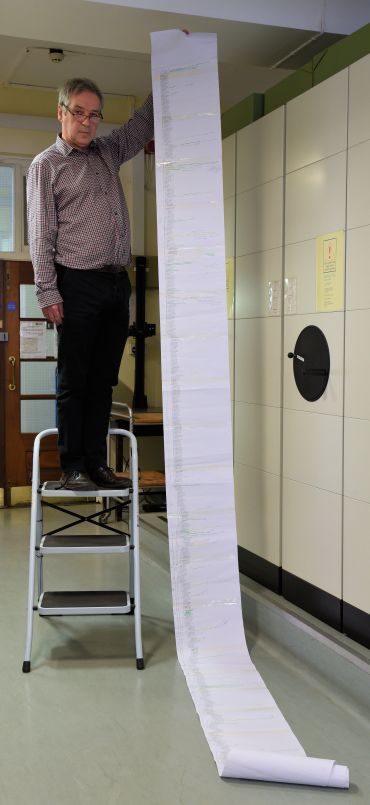 Professor Robert Scotland holding the Ipomoea family tree
Professor Robert Scotland holding the Ipomoea family treeAs part of the work, the team needed to identify specimens from around the world. Carrying out such a massive piece of research has taken the team of four more than five years, examining thousands of specimens from 80 different collections in Europe as well as from around the world.
The team has discovered 65 new species and have corrected numerous errors in the labelling of plant specimens in museum collections.
To date, the team has discovered 65 new species and have corrected numerous errors in the labelling of plant specimens in museum collections. They have challenged some long-held ideas cherished by botanists and anthropologists. They have created quite a stir in the South Pacific, because the monograph established that plants had travelled long distances over land and sea, without any human assistance – undermining assertions that the existence of sweet potatoes in Polynesia proved beyond doubt there must have been early contact between the Americas and islanders.
Why does this matter? Aside from the obvious academic uses of the monograph, John Wood, one of the monographs authors, says it has very real implications for the environment and for conservation.
How can you know the future of a plant, if you don’t know of its existence or its characteristics?
‘How can you know the future of a plant, if you don’t know of its existence or its characteristics?’ he asks. This is particularly important in the case of potential food crops, such as the wild relatives of the sweet potato, which is one of the top ten global food crops.
‘Insects and flowering plants are the two big powerhouses of global biodiversity,’ says another of the authors, Dr Pablo Munoz Rodriquez . ‘Yet for groups, such as Ipomoea, we haven’t even known what there is….and there’s no chance you can conserve something, if you don’t know what you’ve got.’
- ‹ previous
- 41 of 248
- next ›
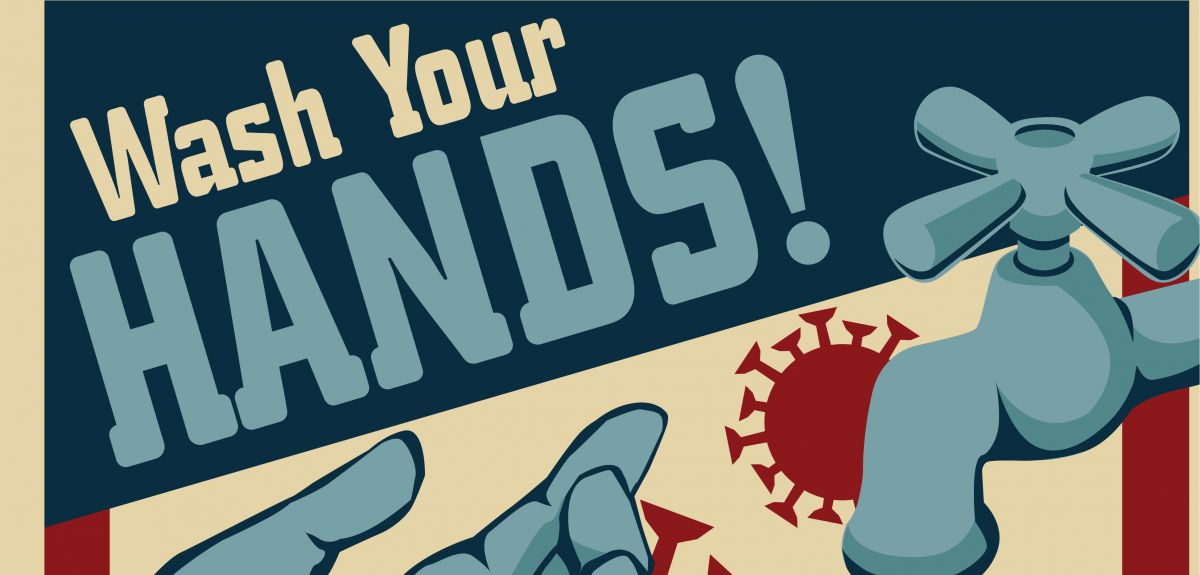
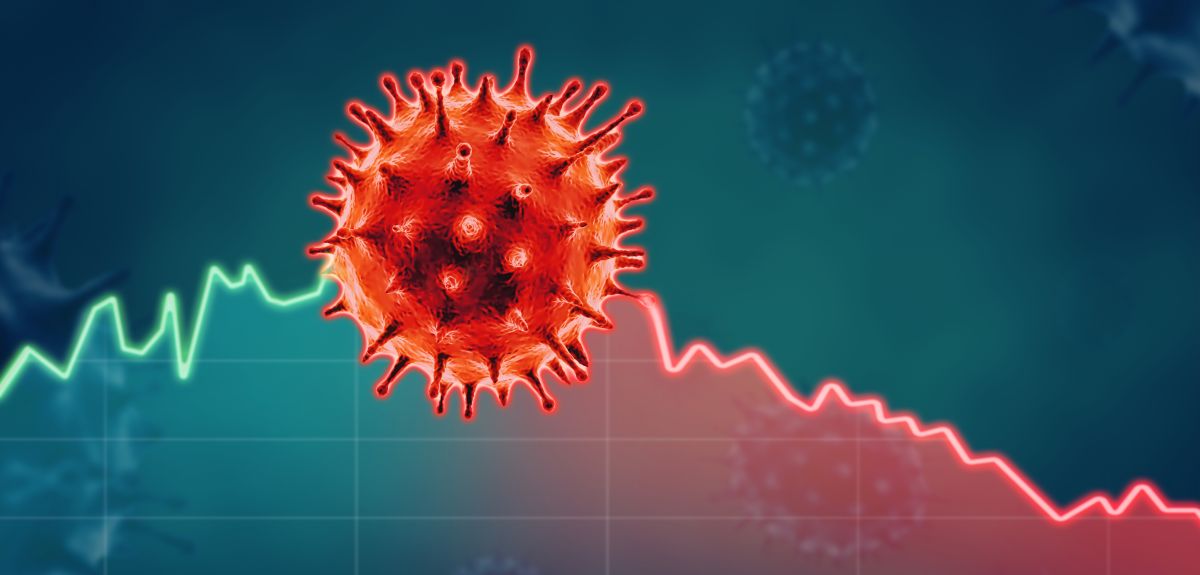


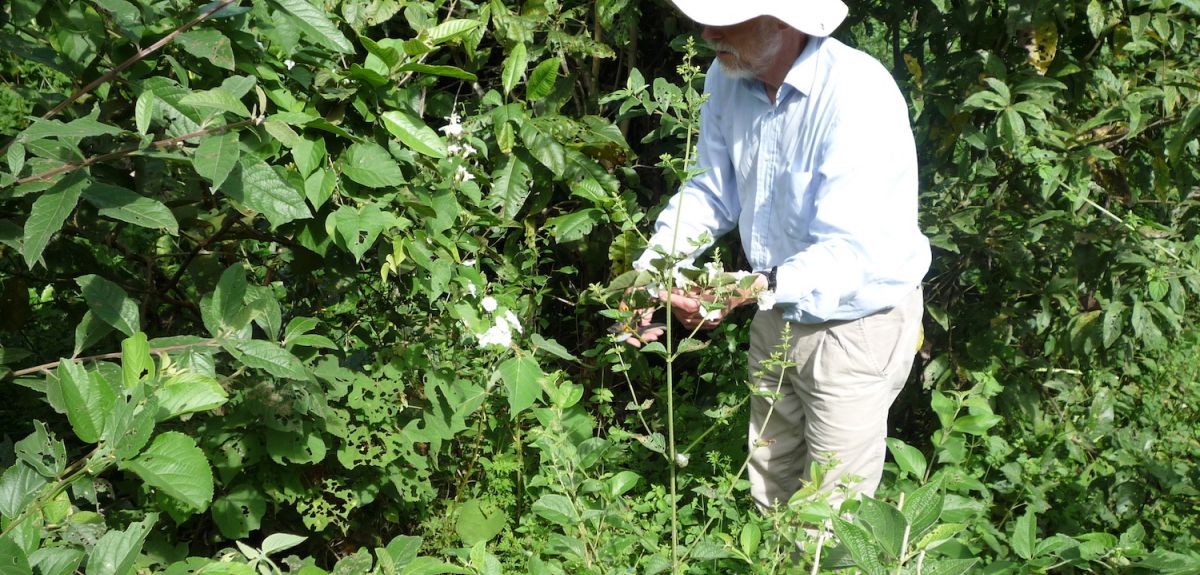
 The hidden cost of AI: In conversation with Professor Mark Graham
The hidden cost of AI: In conversation with Professor Mark Graham  Astrophoria Foundation Year: Dr Jo Begbie reflects on the programme’s first year
Astrophoria Foundation Year: Dr Jo Begbie reflects on the programme’s first year World Malaria Day 2024: an interview with Professor Philippe Guerin
World Malaria Day 2024: an interview with Professor Philippe Guerin From health policies to clinical practice, research on mental and brain health influences many areas of public life
From health policies to clinical practice, research on mental and brain health influences many areas of public life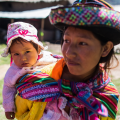 From research to action: How the Young Lives project is helping to protect girls from child marriage
From research to action: How the Young Lives project is helping to protect girls from child marriage  Can we truly align AI with human values? - Q&A with Brian Christian
Can we truly align AI with human values? - Q&A with Brian Christian  Entering the quantum era
Entering the quantum era Can AI be a force for inclusion?
Can AI be a force for inclusion? AI, automation in the home and its impact on women
AI, automation in the home and its impact on women